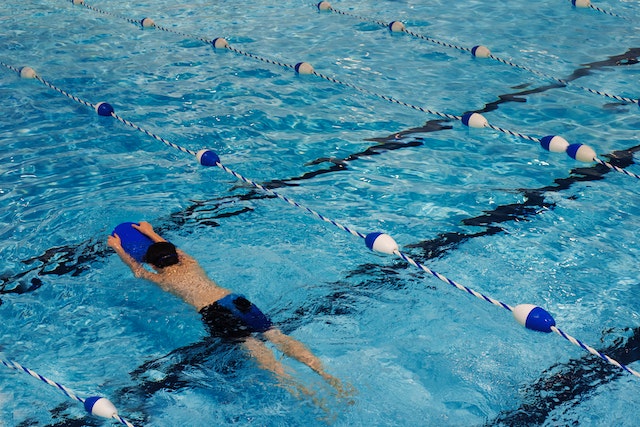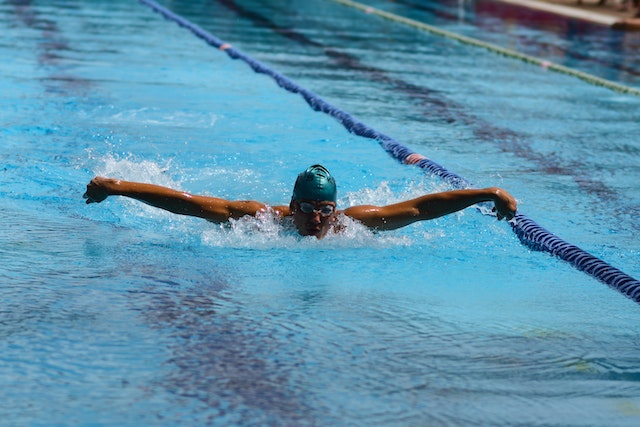Everyone should know that sports and exercise are healthy. But sport in the water offers some very special advantages – we will show you in this article what these are with lifeguard class.
Especially in summer, many of us are drawn to the swimming pools – while many people sunbathe on the sunbathing lawns and just jump into the water to cool off, some also use the pools for sporting activities, for example, to swim laps. It’s always a good idea, as swimming is one of the healthiest forms of exercise and offers a number of advantages over dry land activities.
That is why water sports are particularly healthy
The main advantage is that our perceived body weight in the water is many times lower than on land, which means that the strain on the spine, hips, knees, and ankles is not as high when swimming as it is when swimming Example while jogging – when swimming, the entire musculoskeletal system is relieved.
This circumstance is particularly beneficial for certain groups of people, for example, overweight people who would like to lose weight – depending on the speed, it is possible to burn up to 650 calories per hour in the water, and the water temperature also plays a role: the colder the water, the worse we burn more calories.
However, swimming in the water can also help enormously for older people with reduced physical activity or people who suffer from arthrosis or back pain and otherwise have no opportunity to do sports, in order to improve their health and increase their general well-being.
Even after accidents – such as sports injuries – swimming is a popular way to rebuild physical performance and quickly improve quality of life.

Swimming is also a great way to build endurance as the steady movements get the cardiovascular system going while also training the heart muscle – here’s another difference from exercise on land, because while we’re underwater, our body is under higher pressure – the blood vessels on our skin’s surface are squeezed and displace our blood. This means that our heart has to transport more blood with each beat.
With regular sporting activity in the water, the heart volume increases, the heart rate is reduced and the heart works more energy-efficiently in the long run.
Swimming – The all-rounder for your body
Swimming has other advantages: on the one hand, blood circulation is stimulated primarily by the strong movement of the legs, which also ensures that the blood is transported back to the heart – on the other hand, there are only very few other types of sport in which it is practiced as many muscles are activated at the same time as when swimming.
Last but not least, the natural resistance of the water makes it possible to train and define the whole body evenly. The even movements of the arms can also relieve tension in the shoulder and neck area.
Swimming can also work wonders for your lungs: the increased pressure underwater puts more strain on them than usual, which is why you automatically have to work harder to breathe and thus increase your lung volume. Sport in the water is ideal for asthmatics or former smokers who want to regenerate or train their lungs, as it actively improves their ability to breathe.
Water sports strengthen your immune system
It is well known and scientifically indisputable that sport strengthens the immune system – moderate training is particularly effective. The effect can be explained by the fact that our immune system is a little irritated or strained with every training session and thus also stimulated – in the long run, this means that it works better.

The reason for this lies in the lymph nodes – this is where the immune cells encounter pathogens. The lymphatic fluid is transported exclusively through muscle movements – prolonged physical inactivity can therefore weaken our immune system, since our body is not designed to sit in the same place all day at a constant temperature, for example. Since all parts of the body are used when swimming, this sport is particularly effective for strengthening the immune system.
Which swimming style is the right one?
There is no right answer to this question – the right swimming style depends on personal taste, so it is all the more important to pay attention to the right technique with each style. We tell you what you have to consider when swimming breaststroke, backstroke, and crawl.
Breaststroke
Even if it is a reflex for some at the beginning, care must be taken when swimming breaststroke that the head is not kept spasmodically above the water – if the head is stretched too much, this leads to a strain on the cervical spine, which leads to unpleasant tension in the back and neck area. The head should dip towards the bottom with each stroke to allow the body to slide forward in a stretched position while remaining relaxed.
Backstroke
This style is the gentlest on the body as it stays horizontal at all times and doesn’t put any strain on the neck. Beginners should be careful to swim straight, especially in the pool, so as not to accidentally get in the way of other people.
Crawl
This swimming style is the most efficient from a sporting point of view, as the swimmer moves particularly quickly through the water and the intensive arm and leg movements consume a lot of energy – if you primarily want to burn fat and/or build muscle, you should opt for choosing this style.
The tip for beginners: start with small steps
It is often difficult to start training, especially when you start exercising again or have had a long break or have never exercised regularly. Here, too, swimming is particularly suitable due to the “weightlessness” mentioned above and is easy on the joints.




























